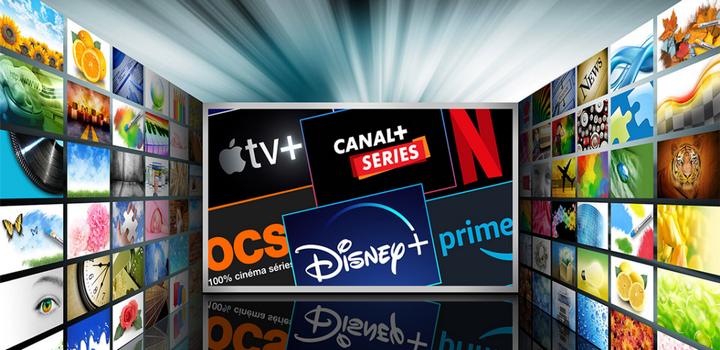What is IPTV?
Internet Protocol Television (IPTV) is a technology that delivers television programming and other video content over the internet instead of traditional satellite or cable systems. Unlike conventional broadcast methods, meilleur iptv uses internet protocol to stream media, allowing viewers to access their favorite shows, movies, and channels on a variety of devices, including smart TVs, computers, tablets, and smartphones. This flexibility is one of the key reasons IPTV has gained popularity in recent years.
How Does IPTV Work?
IPTV operates by breaking down video content into packets and transmitting them over an internet connection. Here’s a simplified overview of how it works:
- Content Acquisition: IPTV providers obtain content from various sources, including TV networks, film studios, and original content creators. This content can be live broadcasts, on-demand videos, or a combination of both.
- Encoding: The video content is then encoded and compressed to ensure efficient transmission over the internet. This step reduces the file size without significantly compromising quality.
- Streaming: Once encoded, the content is sent to a content delivery network (CDN), which distributes it to users. Viewers access the content through a set-top box or an application on their device, which decodes the video stream and displays it on the screen.
- Interactive Features: Many IPTV services offer interactive features like video on demand (VOD), catch-up TV, and the ability to pause or rewind live broadcasts. This interactivity enhances the viewing experience and sets IPTV apart from traditional television.
Types of IPTV Services
There are three main types of IPTV services:
- Live IPTV: This service streams live television broadcasts in real-time. Users can watch shows, sports events, and news as they air, similar to traditional TV.
- Video on Demand (VOD): VOD allows users to access a library of pre-recorded content at any time. This service enables viewers to watch movies and series on their schedule.
- Time-Shifted IPTV: This service allows viewers to watch previously aired shows within a certain timeframe. It’s ideal for those who may have missed a live broadcast.
Advantages of IPTV
- Flexibility: IPTV offers the ability to watch content on various devices, giving users the freedom to choose how and when they view their favorite programs.
- Cost-Effective: Many IPTV services are more affordable than traditional cable or satellite packages, often providing a wide range of channels and content options.
- Personalization: IPTV platforms frequently offer customizable packages, allowing users to select only the channels and content that interest them.
- High-Quality Streaming: With the advancement of internet speeds and streaming technology, many IPTV services can provide high-definition (HD) and even 4K content.
- Interactive Features: The interactive capabilities of IPTV allow for features like pause, rewind, and on-demand viewing, enhancing the user experience.
Challenges and Concerns
Despite its many advantages, IPTV also faces several challenges:
- Internet Dependence: IPTV requires a stable and high-speed internet connection. Poor internet service can lead to buffering and reduced video quality.
- Content Licensing: IPTV providers must navigate complex licensing agreements to legally distribute content, which can affect the availability of certain channels and programs.
- Regulatory Issues: Many countries have strict regulations regarding IPTV services, which can impact the legality and reliability of certain providers.
- Quality Variation: The quality of IPTV services can vary significantly between providers, so consumers must research and choose reputable services to ensure a good viewing experience.
The Future of IPTV
As technology continues to evolve, the future of IPTV looks promising. With the growing popularity of streaming services and advancements in internet infrastructure, IPTV is poised to become a dominant form of media consumption. The rise of 5G technology will further enhance streaming quality and accessibility, making IPTV an even more attractive option for consumers.
Moreover, as content providers continue to invest in original programming and exclusive deals, IPTV services may offer unique viewing experiences that traditional television cannot match.
Conclusion
IPTV represents a significant shift in how we consume television and video content. Its flexibility, cost-effectiveness, and interactivity make it an appealing option for many viewers. However, as with any technology, it is essential to consider both the advantages and challenges it presents. As the landscape of television continues to change, IPTV is likely to play a central role in shaping the future of entertainment.

